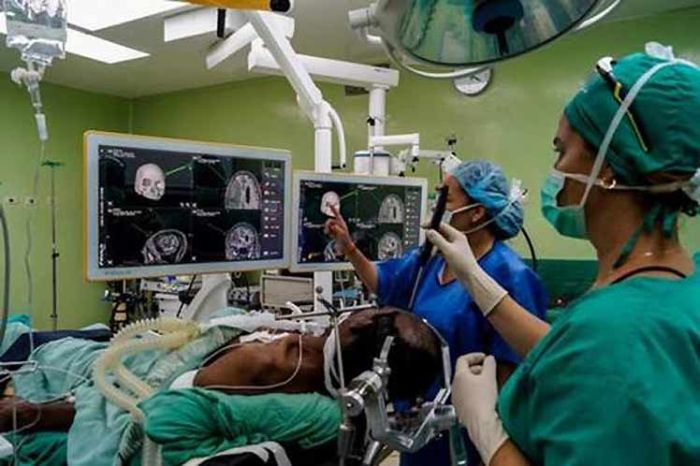
The statement was made by Professor Pedro Valdes, deputy director of the island’s Neuro Sciences Center
Cuban health system can make substantial contributions to new health trends worldwide, like precision medicine, said Professor Pedro Valdes, deputy director of the island’s Neuro Sciences Center.
Precision medicine represents a change of paradigm, as it is based on assessment, rules and algorithms to study the persons during all their lives and provide them with personalized care, the neuro-scientist said at a presentation.
In his remarks, Valdes said that despite the trend gaining ground in the world, there’s a big gap between rich and poor as in the developed nations it is exclusively benefiting high income people thus not turning into major public health coverage.
However, Cuba is ideally located to serve as the intermediary between where the money is for research and those who need this kind of medicine, the doctor said.
Cuba has the experience of the family doctor and the prevention medicine approach centered on primary care, he explained, adding the island has been working for decades focused on precision medicine.
Therefore, the country has the experience to boost such medical trend and contribute to world public health, Valdes highlighted.
In his presentation, the doctor talked over Cuba’s recent breakthroughs in international cooperation on connections of brain regions involved in cognitive and emotional functions and their repercussion in the diagnosis of degenerative, brain-vascular and psychiatric diseases.
He added the island’s main partners on this matter are China and Canada. The three nations are working to create big data bases, which will contribute to boost precision medicine in a just manner.
 Escambray ENGLISH EDITION
Escambray ENGLISH EDITION





Escambray reserves the right to publish comments.